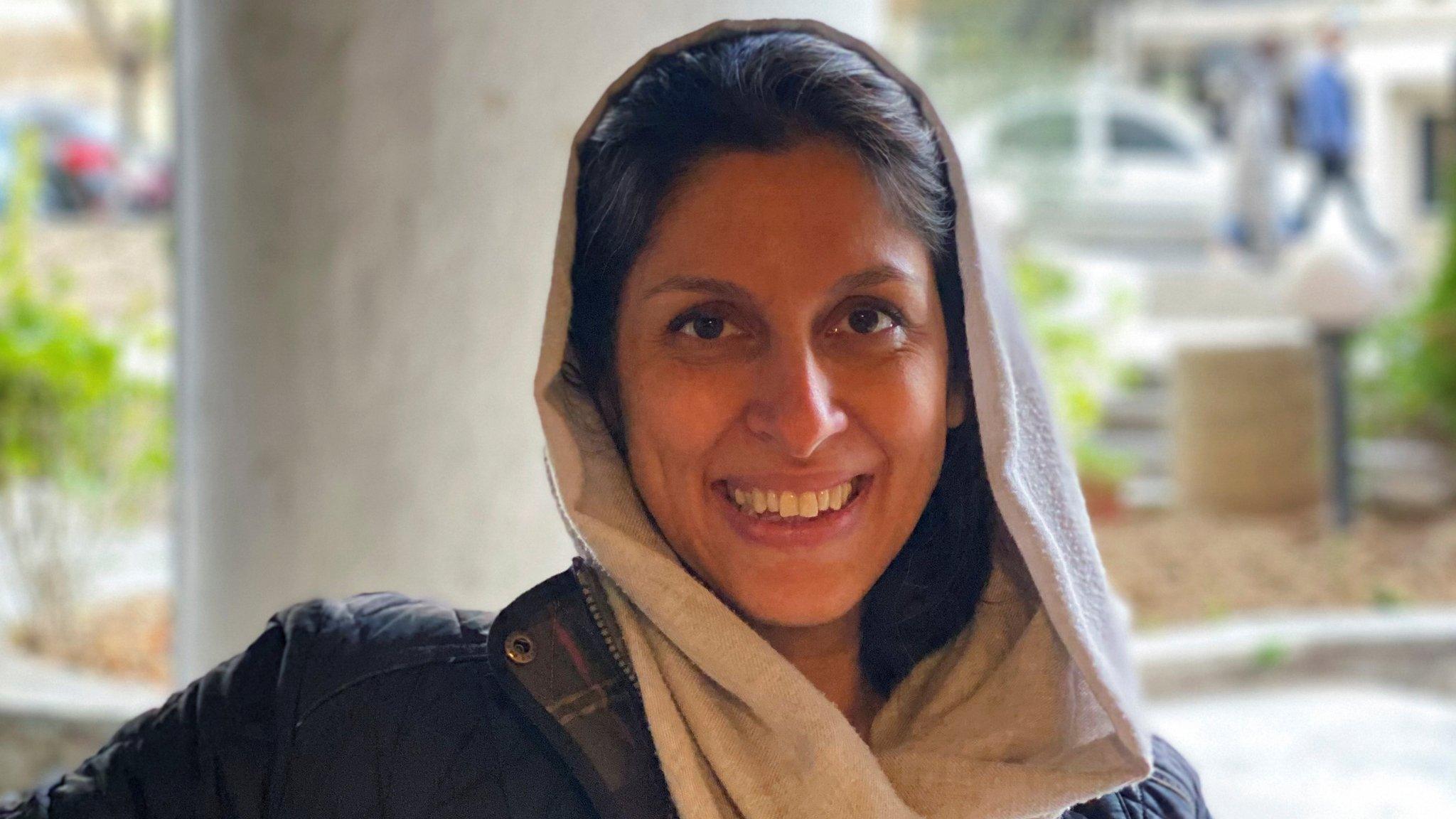Nazanin Zaghari-Ratcliffe in Tehran court on new charge
- Published
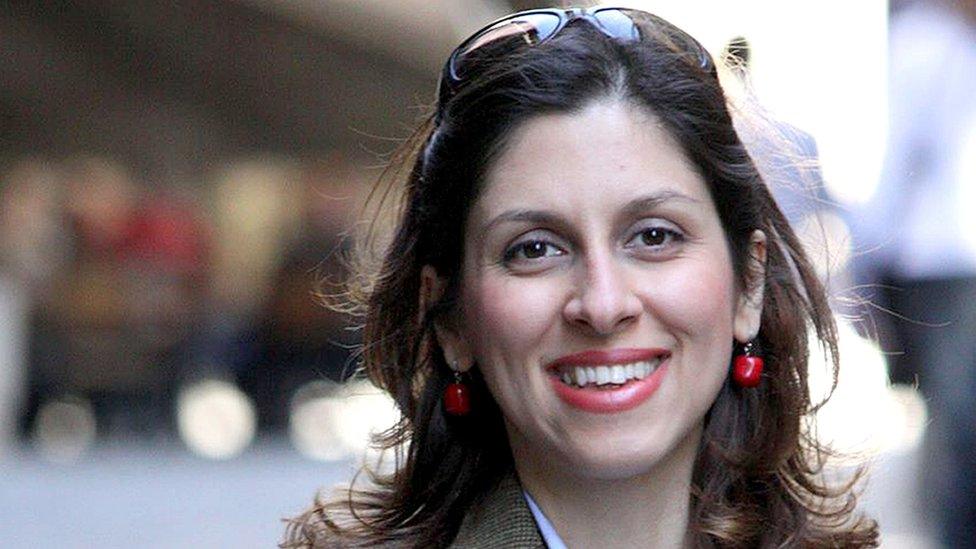
Nazanin Zaghari-Ratcliffe has appeared in court in Iran, a week after her ankle tag was removed having served five years in prison, her lawyer said.
The British-Iranian charity worker was ordered to appear on charges of propaganda against the regime.
The judge told her to expect a verdict within seven working days, according to the Free Nazanin campaign.
Her husband Richard said the British embassy in Tehran had declined to accompany his wife to Sunday's trial.
Mrs Zaghari-Ratcliffe was jailed in 2016 for allegedly working against the Iranian government, which she has always denied.
According to her lawyer, she was accused in Sunday's hearing of participating in a demonstration outside the Iranian embassy in London 12 years ago and giving an interview to the BBC Persian service, said BBC correspondent Caroline Hawley.
Her lawyer said the atmosphere in court had been calm and he hoped she would be acquitted because she has already served five years on a more serious charge.
Foreign Secretary Dominic Raab called it "unacceptable and unjustifiable" that Iran has chosen to continue with the second "wholly arbitrary" case, saying the Iranian government has "deliberately put her through a cruel and inhumane ordeal".
He added: "Nazanin must be allowed to return to her family in the UK without further delay. We continue to do all we can to support her."

Analysis
By Caroline Hawley, Diplomatic correspondent
There is a good reason why Richard Ratcliffe describes his wife as a "pawn" in a game of chess, a bargaining chip. And she's not alone.
Nazanin Zaghari-Ratcliffe - together with several other dual nationals from a range of countries - is caught up in the middle of some complicated geopolitics.
The backdrop to her case is the West's difficult relationship with Iran, and a growing emphasis by Iran on "hostage diplomacy".
The charity worker was told explicitly that her imprisonment was linked to a £400m debt owed by Britain for an arms deal to Iran that was done before she was even born.
In the days of the Shah, Iran had bought tanks from Britain but, after the 1979 Revolution, they were not delivered.
The UK and Iran have been haggling in court over interest on the debt for years. And when UK PM Boris Johnson spoke by phone to Iranian President Hassan Rouhani last week to demand Mrs Zaghari-Ratcliffe's release, the Iranian president apparently complained that no "practical progress" had been made by the UK to repay the debt.
Whatever happens in the courts, the message from Iran seems to be, if not loud, at least pretty clear.
Much less clear is when her ordeal will be over.

Mrs Zaghari-Ratcliffe's MP, Labour's Tulip Siddiq, said she was "deeply concerned about the possible outcome" and said the anxiety of waiting for a verdict will "just add to her ongoing mental torture".
She also criticised Prime Minister Boris Johnson for not being "capable of ensuring that British officials attended her court hearing to ensure a fair trial".
Ms Siddiq said: "Now is the time to bring Nazanin home to the UK, and our government has a responsibility to pull every possible lever to make that happen."
Mrs Zaghari-Ratcliffe's family fear the court case could be used to block her return to the UK because the Iranian government wants to keep her for diplomatic leverage.
Mr Johnson has called for her "immediate release".
Earlier, Mr Ratcliffe said his wife had been due to report to court at 09:00 Iranian time (05:30 GMT), but did not know when her trial would be heard, what it would entail or how long it would be.
She was expected to appear in the Revolutionary Court, in front of the same judge who conducted her earlier hearings.
Speaking to the BBC, Mr Ratcliffe said that neither he nor his wife had any idea what to expect. "It's like trying to read tea leaves," he said.
"The charges are irrelevant. This is not a real court process. This is not a fair trial - it's an act of abuse.
"Nazanin is now pretty stressed. She is extremely twitchy, restless and agitated."
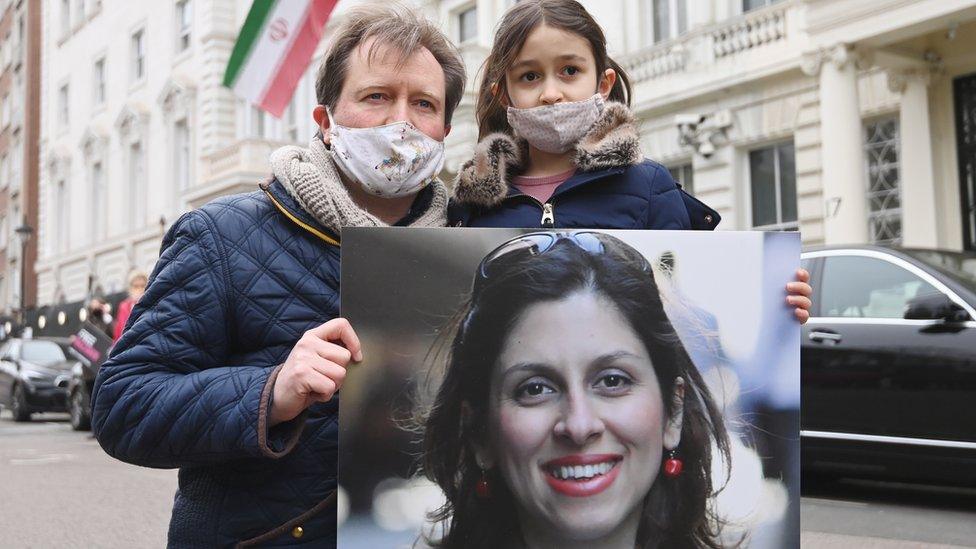
Richard Ratcliffe with his daughter Gabriella during a protest outside the Iranian Embassy in London
Mr Ratcliffe had hoped the British ambassador would accompany his wife to the trial, but said the British embassy in Tehran had declined.
"I am disappointed that the embassy has declined to accompany Nazanin to the Revolutionary Court," he told the BBC.
"To my mind, it is a missed opportunity to protect her, a missed opportunity to stand up for her as British, and it is not the first. I hope that timidity is not a choice that we come to regret."
The Foreign, Commonwealth and Development Office said it had formally requested access to the hearing.
Amnesty International UK said it was disappointed UK officials did not attend Sunday's hearing "to show Nazanin the kind of support she needs and is entitled to".
Director Kate Allen added: "One trumped-up case against Nazanin was bad enough - a second one is an act of cruelty."
The case comes after a charity warned in a medical report sent to the UK government that the 43-year-old was suffering from major depression and PTSD and was in need of urgent treatment.
The report, commissioned by the human rights charity Redress, said she was interrogated for hours, often blindfolded, while in solitary confinement at the beginning of her sentence.
Before her ankle tag was recently removed, Mrs Zaghari-Ratcliffe had been under house arrest in Tehran since being released from jail last March due to the coronavirus crisis.


Related topics
- Published30 October 2020
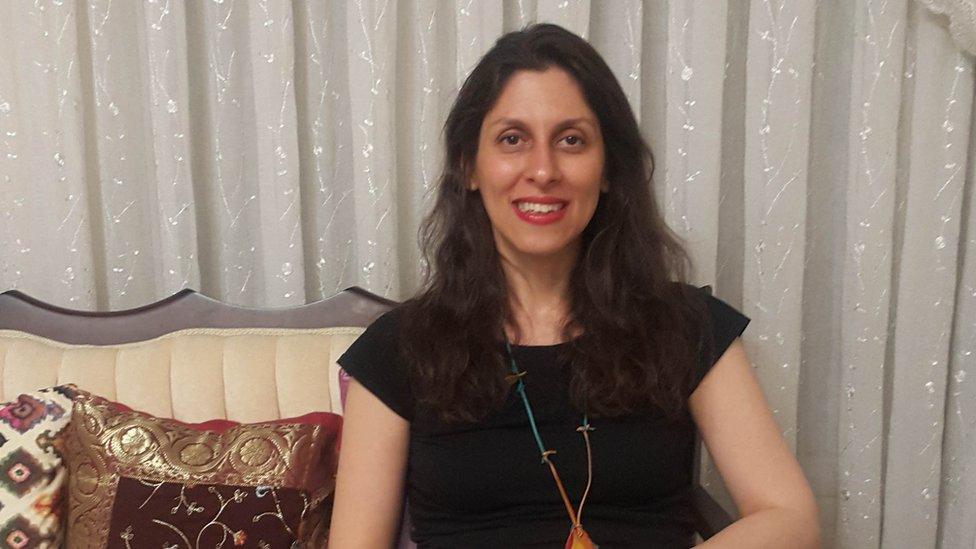
- Published19 September 2023
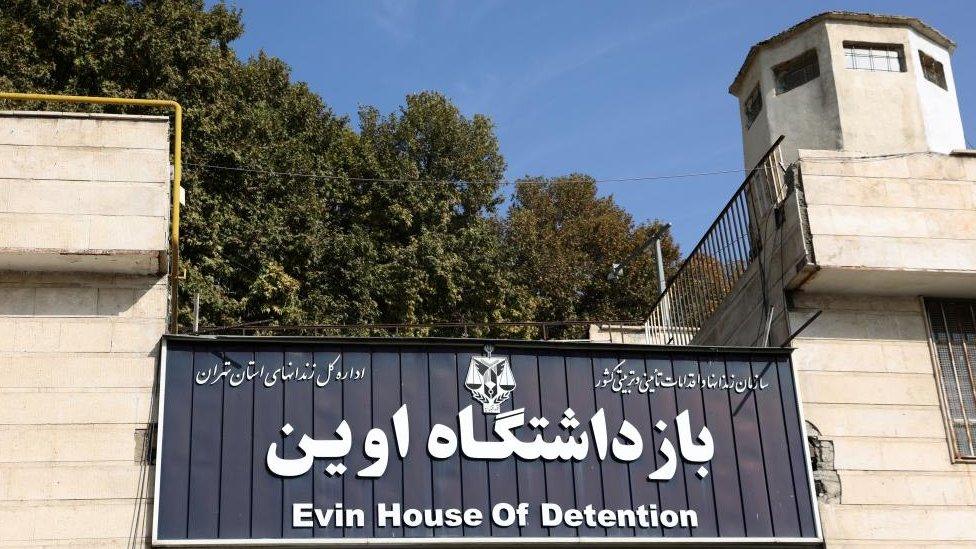
- Published10 March 2021
